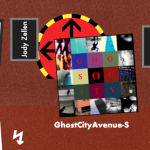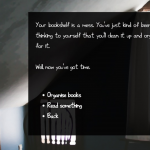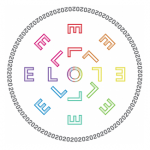electropoetics
River: Forking Paths, Monsters, Simultaneous Timelines and Continuity over 25 Years of Creative Practice

FEATURED ARTIST: In this essay, Caitlin Fisher reflects on the ideas, processes, and approaches that have shaped and influenced her work in digital storytelling and electronic literature for over 25 years. She invokes theorists like Borges, Haraway, and Aristotle and critical concepts of hybridity, string theory, hypermedia, and spatial narratives to illuminate readers about the simultaneous timelines, continuity, and forking paths that run through the river of her work.
COVID E-LIT: Digital Art from the Pandemic curatorial statement

Nacher, Rettberg, and Pold offer a curatorial statement about the COVID E-Lit Exhibition--one of the many exhibitions held at the ELO 2021 conference. This Exhibition in particular, they explain, focused on reactionary, reflexive, and recovery-based art in response to the COVID-19 pandemic.
Why Twining?

This except from Twining: Critical and Creative Approaches to Hypertext Narratives explores the popular and open-source digital storytelling platform Twine. Authors Anastasia Salter and Stuart Moulthrop discuss the history of Twine as well as existing works and possible projects.
Pivot! Thoughts on Virtual Conferencing and ELOrlando 2020

Stanfill and Salter reflect on conferencing amidst their organization of the 2020 ELO Conference in Orlando, Florida that had to change to due a global pandemic. Sharing their experiences and wisdom, they discuss the strengths and weaknesses of various virtual platforms for conferencing, coupled with the contexts of concurrent politics, co-location, and lessons for the future.
Constructing the Other Half of The Policeman’s Beard

Leah Henrickson explores the contexts surrounding the publication of The Policeman's Beard is Half Constructed, advertised as “the first book ever written by a computer” at the time of its release in 1984. Drawing from contemporary reviews, personal correspondence with the book’s creators, and analysis of the book itself, Henrickson offers insight into precisely how this book was produced, and by whom. Although a computer program called Racter is listed as the author of The Policeman’s Beard, this attribution does not accurately reflect the human labor driving the book’s development and dissemination. This essay illuminates these networks of human labour that ultimately led to Racter and The Policeman's Beard.